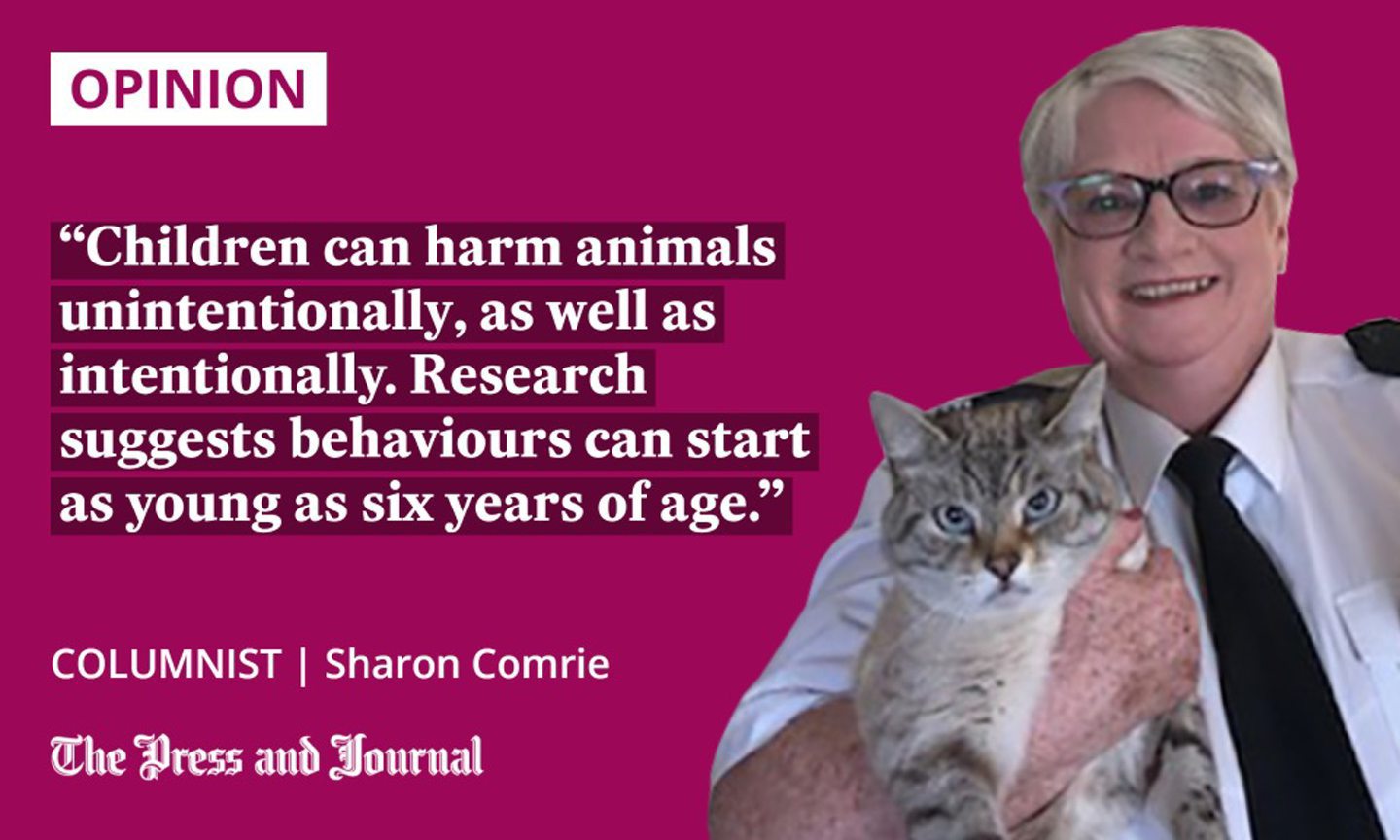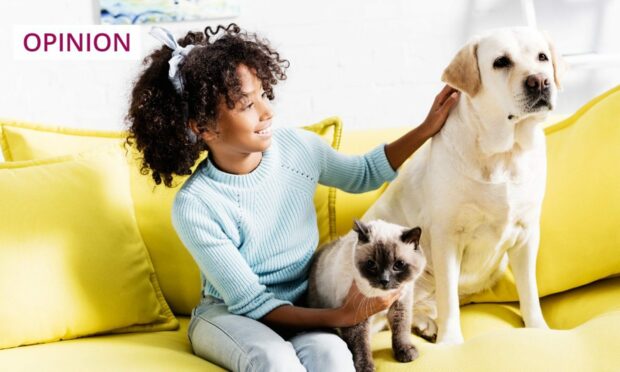With schools now well and truly back in the swing of things after the summer holidays, this month I would like to talk to you about our Animal Guardians Educational Resource programme.
As Scotland’s animal welfare charity, we are proud to offer this free programme, which aims to help children develop more positive behaviours towards animals.
Collaborative research between the Scottish SPCA and the University of Edinburgh showed that 70% of UK children live with a pet. Children can form strong emotional attachments to their animals and often think of pets as important members of their family.

However, children can also harm animals unintentionally, as well as intentionally. Research on cruelty towards animals suggests behaviours can start as young as six years of age.
Young people can be referred to the Animal Guardians programme for a multitude of reasons, including teasing or frightening an animal, rough handling, over-loving, intentional or unintentional harm (including towards wildlife), or even witnessing animal abuse in the family home.
Once referred, they receive one-to-one, bespoke workshop sessions, tailored to the needs and learning style of each individual. The number and frequency of workshops each young person attends will vary but, in general, most will participate in a total of six to 10.
Adults have reported significant improvements in children
Through playing a range of games, participating in activities and, where appropriate, visiting an animal rescue and rehoming centre, we help them learn about both human and animal emotions, what animals need to keep them healthy and happy, and how to be responsible when around animals.
Our aim is to ensure we nurture children’s empathic and compassionate behaviour.
The programme takes referrals from parents or carers, social workers, teachers and many other professionals, including organisations that specialise in working with children.
This has proved to be a valuable and important service which is now available in the north and north-east of Scotland.
Unfortunately, although we suspect there will be many children and young people in the north who would benefit from taking part in the programme, Covid-19 restrictions have led to a slower roll out than we would have liked.
Overall, the response from parents, carers and referring adults of those who have taken part is extremely positive.
Most adults have seen a significant improvement in the young person’s empathy, compassion and interactions with animals.
They have also reported seeing improvement in their relationships with peers, family members and other adults.
I would encourage anyone who would like to know more or who knows a child who may benefit from the Animal Guardians programme to reach out to us confidentially at animalguardians@scottishspca.org.
- For more information, visit: scottishspca.org/animal-guardians
Sharon Comrie is community and engagement manager for the Scottish Society for Prevention of Cruelty to Animals (SSPCA)












Conversation